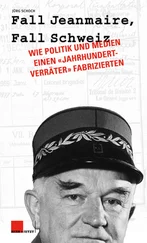So have you heard of him?
No, he said, with a surety that suggested he could not possibly know of such a person, despite his earlier comments. You’ve not heard of him, have you, Mala?
Mala said she hadn’t and began somewhat hastily clearing the dessert dishes. She dropped one and it shattered and this time Fan helped her. Mala’s thumb was bleeding quite badly and Fan said she should see to her wound. Mala excused herself and Quig and Loreen and even Mister Leo started helping Fan pick up the shards from the floor and then bring the rest of the dishware into the kitchen. By the time Mala returned, everything had been brought in and Loreen was washing and Quig drying, Fan loading the dishwasher. Mister Leo was trying to put away some of the glasses and bowls but in fact didn’t know where they went. He handed the stemware to Mala and asked Fan if she would come with him for a moment.
As they walked to the other end of the house, he cupped her shoulder and then the back of her neck, and she tensed at the weight of his cool, strong grip. He was the same height as Quig but he seemed to loom much higher as he opened the door to his darkened office, only the dance of the numerous screensavers murkily lighting the room, which now looked like the waters of her awful dream. He touched a wall panel as they passed and the lighting turned on to a gentle level of brightness. He had her sit in his large leather chair while he retrieved some items from the credenza behind the desk; the first thing was a glass-encased set of small vials, the geno-chemo for Sewey.
I thought you could give this to Loreen, he said, kneeling so that he was at her height. She said you and her son were good friends.
Fan said they were.
Is he your boyfriend?
She shook her head.
It’s not as though you’ll never see these people again. Someday, if you still wanted, you might have the means. But you’ll decide then.
Fan nodded.
And this is for you.
It was a pretty little box of red lacquered wood, its lid inlaid in faux pearl with the figure of a delicate, reposing crane.
Go ahead, open it.
She suddenly didn’t want to, but he insisted. It was a silver locket on a silver chain. He had her open the locket and inside there was a diamond, small but dazzling and cut in a perfectly faceted oval.
It’s a real one, he said. Antique, not manufactured as most all diamonds are these days. It’s worth quite a sum. Probably more than you can imagine. It’s all yours, Fan. But don’t put it on now. Let this be our secret, yes? Why don’t you wear it only at night, when you go to bed. All right? How nice that would be. Will you be a good, sweet girl and do that?
Our Fan, we can well imagine, could not sleep that night. After returning with Mister Leo from the office and giving the therapy to Loreen, she went right up to her room. The necklace was in her pocket and she dropped it on the night table, not wanting it touching her. The others had been wondering where she and Mister Leo had gone, but once she presented the vials Loreen was overjoyed, hugging her and Quig and even Mister Leo, despite his visibly stiffening at her embrace. Quig was squarely looking at her now but Fan wouldn’t acknowledge him, afraid she might betray her dread. She must get away but not before Loreen and Quig were back at the Smokes and Sewey’s medicine was secured and after the well-drilling was done. She would have to endure for that long at least. But there was no lock on her bedroom door or on the door of her bathroom, and she wondered whether Mala would let her stay in her room after tomorrow, when Quig and Loreen departed. Although when she pictured the girls on Mala’s viewer, a streak of panic flashed through her; was she imagining it, or had some of them been adorned with an inordinately fancy piece of jewelry, a stud earring or gold ring or pearl necklace? And through all these years, with all those girls, had Mala been a knowing bystander, or abettor, or worse?
She kept the bed lamps on and read from Penelope’s handscreen. She was going to stay up all night, fighting it. Yet at some point in the scant moments before dawn she must have fallen dead asleep. For the lamps around her were turned off, the veil of the night drawn down over her. And we can barely recount what was about to happen next, for how awful it could have been, for when she gasped from the touch on the cap of her knee, and the horrid murmuring blandishments, she half cried out. There was the stricture of Mister Leo’s hand. She did have time to deeply breathe. She was passing out. He was fully heavy on her and now she wished to be gone, but before anything else could happen, he was sliding away. And the voice she heard was not his but Miss Cathy’s, telling her husband to get off the bed.
Why, in the life of a community, does a certain happening or person become the stuff of lore? You would probably say great accomplishment is the reason, such as when one of our B-Mor children triumphed in an event for the first time ever in the biannual regional track meet (in the four-thousand-meter event), this against a field of intensively coached, superprimed Charters. We will note the historical significance of the achievement, basking in the reflected glory, for naturally we would like to think how it is emblematic of the best qualities of our kind, even if we ourselves can hardly summon the effort to jog half a block in pursuit of a candy wrapper skittering away on a sudden gust of wind.
It’s our common character on display, which is why we invest so much of ourselves — often totally beyond reason — in particular figures and performers, both fictive and of flesh. And when that display is unsettling or notorious, we can collectively wring our hands and wail and then try to assuage the disquiet in our hearts by more coolly interrogating its antecedents, the conditions and causes of its expression, and debate about how we might curb a future recurrence, none of this cynically posed but subtly servicing the final hopeful notion that This Is Not We.
Yet sometimes, as in the instance of our dear Fan, the talk lingers. Perhaps it’s because we don’t have much actual footage of her, unlike that of the long-distance runner, or even of Joseph niftily curling a shot into the goal. There’s no more to see on our handscreens after that first surveillance vid of her exit, nothing at all, and so the secondary rumor and conjecture continues to root and grow. We reshape the story even when we believe we are simply repeating it. Our telling becomes an irrepressible vine whose hold becomes stronger than the originating stock and sometimes even topples it, replacing it altogether.
And while we shall resume our trailing of what happened to Fan et al. after Miss Cathy’s intervention, we feel the need to return at least briefly to B-Mor, where rumors had spread about imminent cutbacks in the production facilities because of the oversupply of fish and now produce and then even some outlandish scenarios about the eventual shutdown and closure of B-Mor itself. For after the price of fish dropped precipitously, so, too, did the prices on our succulent vegetables, the markets of our neighborhoods for a time selling produce by the crate, the obvious explanation being that Charter suspicion of our products had widened, branding even those perfectly sheened and plump tomatoes that Reg and his coworkers would pick to be somehow perilous to their health.
As with what occurred with the falling price of fish, our first impulse was to buy as much as we could of normally very expensive Charter-bound fresh peas and cucumbers and sweet corn, most everyone freezing and salting and canning whatever their households couldn’t consume, so much so that the price of pickling jars tripled and then quadrupled before the containers of new jars finally got trucked in. By that time, the supply of ripened, ready produce had more or less equilibrated, our facilities adjusting accordingly to the lowered Charter demand, and the unfortunate B-Mor fellow who remortgaged his clan’s row house to bring in the jars was ruined, as the price suddenly dropped below what they used to cost.
Читать дальше












